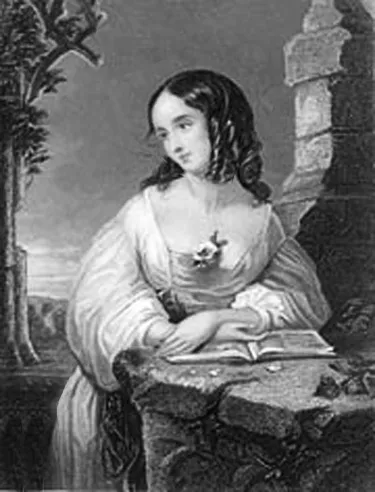When Percy Shelley Got Kicked Out Of Oxford University

Percy Bysshe Shelley, born in 1792, emerged into the world as the eldest son of Sir Timothy Shelley, a prominent Member of Parliament, affluent landowner, and Justice of the Peace. Sir Timothy, in turn, descended from the American-born Sir Bysshe Shelley, 1st Baronet of Castle Goring, bestowing upon the future poet not only a considerable estate but also the prospect of inheriting a prestigious title and securing a seat in Parliament.
Shelley received his education at the esteemed Eton College, where his passion for poetry ignited. His intellectual journey continued at Oxford University.
Ever the iconoclast, Shelley's defiance manifested in his self-declaration in a hotel register as a "Democrat, Philanthropist, Atheist." His atheistic convictions, however, landed him in hot water during his brief tenure at Oxford. Collaborating with his friend Thomas Jefferson Hogg, Shelley authored a pamphlet titled 'The Necessity of Atheism,' disseminating it under the guise of 'Jeremiah Stukeley.'
In an era where openly challenging the existence of God was tantamount to a criminal offense in England, Shelley found himself in the crosshairs of the Oxford Council of Deans. Despite his unmistakable hand in the pamphlet's creation, Shelley remained steadfast, neither confirming nor denying authorship and subsequently facing suspension.
Unbeknownst to Shelley, his father initiated negotiations with the university in an attempt to secure his son's reinstatement, contingent upon a public renouncement of his atheism. Yet, Shelley adamantly refused, leading to his expulsion and irreparable estrangement from his father.
Undeterred by adversity, Shelley embraced a career in writing, buoyed by a yearly inheritance of £1,000 following his grandfather's demise, allowing him to pursue his literary endeavours with unwavering dedication.

At the age of 19 Shelley eloped to Scotland with his sister’s 16-year-old friend, Harriet Westbrook, the daughter of a coffee shop owner. Their marriage further enraged Shelley’s father, who considered his son had wed beneath him. The union was to end in tragedy after five years when the pregnant Harriet committed suicide by drowning herself in the Serpentine lake in London’s Hyde Park. Before the suicide, Shelley had become increasingly unhappy with his marriage and had accused Harriet of marrying him for his money. He had been spending more and more time away from home, including regular visits to a bookshop owned by atheist journalist and philosopher William Godwin. It was there that he met William's 16-year-old daughter, Mary Wollstonecraft Godwin. The two developed a romantic relationship, prompting Shelley to elope once again, much to the dismay of their fathers. Together, they embarked on a journey, sailing to France before continuing on foot to Switzerland, where they resided for six weeks. In December 1816, a mere 15 days after Shelley received news of Harriet's passing, he and Mary exchanged vows in matrimony.

After returning to England and “facing the music” with their parents, the Shelleys moved to Italy in 1818. There they spent much time with friends including the flamboyant poet Lord (George Gordon) Byron, who had been famously described by his lover, Lady Caroline Lamb, as ''mad, bad and dangerous to know’'. They would enjoy sailing on Lake Geneva discussing poetry and other topics, including ghosts and spirits, and it was on one of these trips that Byron suggested each of them should write a ghost story. That was how Mary came to write the novel, Frankenstein. His love of sailing was to prove fatal for Shelley. On July 8, 1822, while piloting his schooner across Italy’s Bay of Spezia he ran into a storm and the boat foundered. It would be 10 days before his body was washed up near the resort city of Viareggio. By that time the waves and sea creatures had taken their toll and Shelley’s body was unrecognisable. He was identified only by a volume of Sophocles in one pocket and a book of Keats’s poems – belonging to his friend, English poet Leigh Hunt – in the other. Shelley was just 29 when he died. Mary would carry his heart in a silk bag for the rest of her days.


